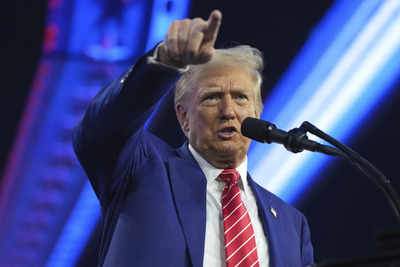In a sharp rebuttal to a Washington Post story, US President-elect Donald Trump dismissed reports suggesting his aides are considering scaling back tariffs on critical imports. Posting on Truth Social, Trump labeled the story “Fake News,” claiming the article, which cited anonymous sources, was “wrong” and misleading.
“The story in the Washington Post, quoting so-called anonymous sources, which don’t exist, incorrectly states that my tariff policy will be pared back. That is wrong. The Washington Post knows it’s wrong. It’s just another example of Fake News,” Trump wrote, refuting the claims made in the article.
The Washington Post report, based on three sources familiar with internal discussions, indicated that Trump’s team was exploring a modified tariff plan. Instead of applying tariffs to all imports, the revised plan would target select sectors deemed critical to US national or economic security. The shift marked a potential departure from Trump’s previous campaign promises, where he had vowed sweeping tariffs, including a 10% levy on global imports and a 60% tariff on Chinese goods.
The speculation led to a significant rally in European stocks and currencies, which saw gains following the story’s release on Monday. However, Trump’s vehement denial left many questioning the future of US trade policy under his leadership.
The Post report suggested that preliminary discussions within Trump’s team had focused on sectors where the US could regain self-sufficiency. These included the defense industrial supply chain (targeting metals such as steel, iron, aluminum, and copper), critical medical supplies (such as syringes, needles, and pharmaceutical materials), and energy production (including rare earth minerals and solar panels), as per the report by Reuters.
While these ideas were still in flux, the report highlighted that the Trump administration was particularly focused on re-shoring essential industries to reduce US dependence on foreign suppliers, especially from China. This was echoed in earlier reports from Reuters, which revealed that the Trump transition team had considered imposing tariffs on all electric vehicle (EV) battery materials, alongside other critical components for clean energy production.
Trade experts warned that such tariffs could disrupt global supply chains, increase costs, and prompt retaliatory measures. The Trump administration has previously used Section 232 tariffs, which target imports that threaten national security, to limit certain foreign goods, particularly those from China.




